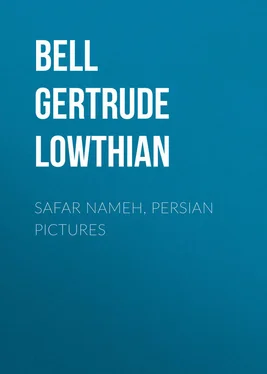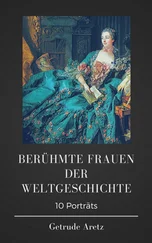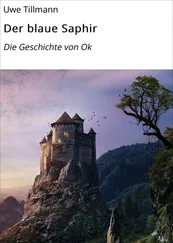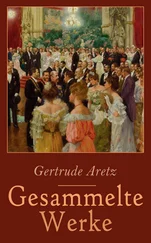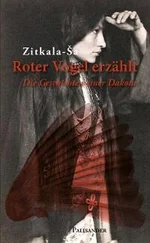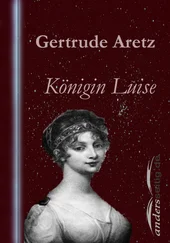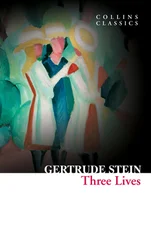Gertrude Bell - Safar Nameh, Persian Pictures
Здесь есть возможность читать онлайн «Gertrude Bell - Safar Nameh, Persian Pictures» — ознакомительный отрывок электронной книги совершенно бесплатно, а после прочтения отрывка купить полную версию. В некоторых случаях можно слушать аудио, скачать через торрент в формате fb2 и присутствует краткое содержание. Жанр: foreign_antique, foreign_prose, на английском языке. Описание произведения, (предисловие) а так же отзывы посетителей доступны на портале библиотеки ЛибКат.
- Название:Safar Nameh, Persian Pictures
- Автор:
- Жанр:
- Год:неизвестен
- ISBN:нет данных
- Рейтинг книги:3 / 5. Голосов: 1
-
Избранное:Добавить в избранное
- Отзывы:
-
Ваша оценка:
- 60
- 1
- 2
- 3
- 4
- 5
Safar Nameh, Persian Pictures: краткое содержание, описание и аннотация
Предлагаем к чтению аннотацию, описание, краткое содержание или предисловие (зависит от того, что написал сам автор книги «Safar Nameh, Persian Pictures»). Если вы не нашли необходимую информацию о книге — напишите в комментариях, мы постараемся отыскать её.
Safar Nameh, Persian Pictures — читать онлайн ознакомительный отрывок
Ниже представлен текст книги, разбитый по страницам. Система сохранения места последней прочитанной страницы, позволяет с удобством читать онлайн бесплатно книгу «Safar Nameh, Persian Pictures», без необходимости каждый раз заново искать на чём Вы остановились. Поставьте закладку, и сможете в любой момент перейти на страницу, на которой закончили чтение.
Интервал:
Закладка:
In memory of the sufferings and death of that forlorn band and of their sainted leader, all Persia broke into lamentation. He, the holy one, hungered and thirsted; the intercessor with God could gain no mercy from men; he saw his children fall under the spears of his enemies, and when he died his body was trampled into the dust, and his head borne in triumph to the Khalif. The pitiful story has taken hold of the imagination of half the Mohammedan world. Many centuries, bringing with them their own dole of tragedy and sorrow, have not dimmed it, nor lessened the feeling which its recital creates, partly, no doubt, because of the fresh breeze of religious controversy which has swept the dust of time perpetually from off it, but partly, too, because of its own poignant simplicity. The splendid courage which shines through it justifies its long existence. Even Hussein’s enemies were moved to pity by his patient endurance, by the devotion of his followers, and by the passionate affection of the women who were with him. The recorded episodes of that terrible tenth of Muharram are full of the pure human pathos which moves and which touches generation after generation. It is not necessary to share the religious convictions of the Shiahs to take a side in the hopeless battle under the burning sun, or realize the tragic picture of the Imam sitting before his tent-door with the dead child in his arms, or lifting the tiny measure of water to lips pierced through by an arrow-shot – a draught almost as bitter as the sponge of vinegar and hyssop. ‘Men travel by night,’ says Hussein in the miracle play, ‘and their destinies travel towards them.’ It was a destiny of immortal memory that he was journeying to meet on that march by night through the wilderness, side by side with El Hurr and the Khalifs army.
Shortly after we landed in Persia we came unexpectedly upon the story of the martyrdom. In the main street of Kasvin, up which we were strolling while our horses were being changed (for we were on our way to Tehran), we found a crowd assembled under the plane-trees. We craned over the shoulders of Persian peasants, and saw in the centre of the circle a group of players, some in armour, some robed in long black garments, who were acting a passion play, of which Hussein was the hero. One was mounted on a horse which, at his entries and exits, he was obliged to force through the lines of people which were the only wings of his theatre; but except for the occasional scuffle he caused among the audience, there was little action in the piece – or, at least, in the part of it which we witnessed – for the players confined themselves to passing silently in and out, pausing for a moment in the empty space which represented the stage, while a mollah, mounted in a sort of pulpit, read aloud the incidents they were supposed to be enacting.
But with the beginning of Muharram the latent religious excitement of the East broke loose. Every evening at dusk the wailing cries of the mourners filled the stillness, rising and falling with melancholy persistence all through the night, until dawn sent sorrow-stricken believers to bed, and caused sleepless unbelievers to turn with a sigh of relief upon their pillows. At last the tenth day of Muharram came – a day of deep significance to all Mohammedans, since it witnessed the creation of Adam and Eve, of heaven and hell, of life and death; but to the Shiahs of tenfold deeper moment, for on it Hussein’s martyrdom was accomplished.
Early in the afternoon sounds of mourning rose from the village. The inhabitants formed themselves into procession, and passed up the shady outlying avenues, and along the strip of desert which led back into the principal street – a wild and savage band whose grief was a strange tribute to the chivalrous hero whose bones have been resting for twelve centuries in the Plain of Kerbela. But tribute of a kind it was. Many brave men have probably suffered greater tortures than Hussein’s, and borne them with as admirable a fortitude; but he stands among the few to whom that earthly immortality has been awarded which is acknowledged to be the best gift the capricious world holds in her hands. If he shared in the passionate desire to be remembered which assails every man on the threshold of forgetfulness, it was not in vain that he died pierced with a hundred spears; and though his funeral obsequies were brief twelve hundred years ago, the sound of them has echoed down the centuries with eternal reverberation until to-day.
First in the procession came a troop of little boys, naked to the waist, leaping round a green-robed mollah, who was reciting the woes of the Imam as he moved forward in the midst of his disordered crew. The boys jumped and leapt round him, beating their breasts – there was no trace of sorrow on their faces. They might have been performing some savage dance as they came onwards, a compact mass of bobbing heads and naked shoulders – a dance in which they themselves took no kind of interest, but in which they recognised that it was the duty of a Persian boy to take his part. They were followed by men bearing the standards of the village – long poles surmounted by trophies of beads and coloured silks, streamers and curious ornaments; and in the rear came another reciter and another body of men, beating their breasts, from which the garments were torn back, striking their foreheads and repeating the name of the Imam in a monotonous chorus, interspersed with cries and groans.
But it was in the evening that the real ceremony took place. The bazaar in the centre of the village was roofed over with canvas and draped with cheap carpets and gaudy cotton hangings; a low platform was erected at one end, and the little shops were converted into what looked very like the boxes of a theatre. They were hung with bright-coloured stuffs and furnished with chairs, on which the notabilities sat and witnessed the performance, drinking sherbet and smoking kalyans the while. We arrived at about nine o’clock and found the proceedings in full swing. The tent was crowded with peasants, some standing, some sitting on the raised edge of a fountain in the centre. Round this fountain grew a mass of oleander-trees, their delicate leaves and exquisite pink flowers standing out against the coarse blue cotton of the men’s clothing, and clustering round the wrinkled, toil-worn peasant faces. On the platform was a mollah, long-robed and white-turbaned, who was reading exhortations and descriptions of the martyrdom with a drawling, chanting intonation. At his feet the ground was covered with women, their black cloaks tucked neatly round them, sitting with shrouded heads and with the long strip of white linen veil hanging over their faces and down into their laps. They looked for all the world like shapeless black and white parcels set in rows across the floor. The mollah read on, detailing the sufferings of the Imam: ‘He thirsted, he was an hungered!’ the women rocked themselves to and fro in an agony of grief, the men beat their bare breasts, tears streamed over their cheeks, and from time to time they took up the mollah’s words in weary, mournful chorus, or broke into his story with a murmured wail, which gathered strength and volume until it had reached the furthest corners of the tent: ‘Hussein! Hussein! Hussein!’
It was intensely hot. Cheap European lamps flared and smoked against the canvas walls, casting an uncertain light upon the pink oleander flowers, the black-robed women, and the upturned faces of the men, streaming with sweat and tears, and all stricken and furrowed with cruel poverty and hunger – their sufferings would have made a longer catalogue than those of the Imam. The mollah tore his turban from his head and cast it upon the ground, and still he chanted on, and the people took up the throbbing cry: ‘Hussein! Hussein! Hussein!’
Presently a dervish shouldered his way through the throng. A scanty garment was knotted round his loins, his ragged hair hung over his shoulders, and about his head was bound a brilliant scarf, whose stripes of scarlet and yellow fell down his naked back. He had come from far; he held a long staff in his hands, and the dust of the wilderness was on the shoes which he laid by the edge of the platform. He stood there, reciting, praying, exhorting – a wild figure, with eyes in which flashed the madness of religious fanaticism, straining forward with passionate gestures through the smoky light which shone on his brilliant headgear and on his glistening face, distorted by suffering and excitement. When he had finished speaking he stepped off the platform, picked up his shoes and staff, and hurried out into the night to bear his eloquence to other villages…
Читать дальшеИнтервал:
Закладка:
Похожие книги на «Safar Nameh, Persian Pictures»
Представляем Вашему вниманию похожие книги на «Safar Nameh, Persian Pictures» списком для выбора. Мы отобрали схожую по названию и смыслу литературу в надежде предоставить читателям больше вариантов отыскать новые, интересные, ещё непрочитанные произведения.
Обсуждение, отзывы о книге «Safar Nameh, Persian Pictures» и просто собственные мнения читателей. Оставьте ваши комментарии, напишите, что Вы думаете о произведении, его смысле или главных героях. Укажите что конкретно понравилось, а что нет, и почему Вы так считаете.
